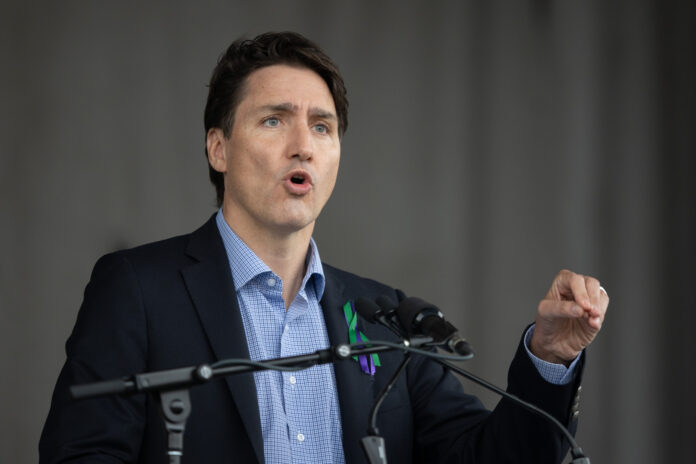Prime Minister Justin Trudeau isn’t saying whether he supports President Joe Biden’s decision to exclude Venezuela, Nicaragua and Cuba from this week’s Summit of the Americas.
Trudeau acknowledges that some of the countries in the Western Hemisphere are “less like-minded” than others.
But he says they all share a number of urgent issues, such as migration pressures, climate change and recovering fully from the COVID-19 pandemic.
Read more:
Trudeau says world leaders should ‘keep up with changes’ as Chile undergoes mining reform
All three are expected to be on the agenda at the weeklong summit as the prime minister departs for Los Angeles later Tuesday.
On the way, he and Defence Minister Anita Anand are stopping in Colorado Springs, Colo., for meetings with commanders and officials from NORAD, the joint-command continental defence system slated for upgrade.
Also accompanying Trudeau are Environment Minister Steven Guilbeault and Foreign Affairs Minister Melanie Joly, who is scheduled to meet with U.S. Secretary of State Antony Blinken and Mexican counterpart Marcelo Ebrard.
“It’s extremely important that we have an opportunity to engage with our fellow hemispheric partners – some like-minded, some less like-minded,” Trudeau told a news conference Monday in Ottawa with his Chilean counterpart Gabriel Boric at his side.
“Talking about the important issues that our people have in common, whether it’s migration pressures, whether it’s climate change, whether it’s coming through this pandemic, this is an important moment for us to gather.”
Trending Stories
Ukraine recovers bodies of Ukrainian soldiers who died at Mariupol steel plant siege
First case of monkeypox confirmed in B.C.
Trudeau calls China’s response to ‘buzzing’ Canada’s fighter jets ‘irresponsible and provocative’
Canada continues to champion the importance of human rights and democratic values in all three of the excluded countries, “even as we recognize that Canada has a long-standing approach to Cuba that is different from the United States.”
Boric was much more forceful in condemning the White House “error.”
“We have to express in the United States and elsewhere that exclusion is not the right path,” Boric said.
“When the United States claims to exclude certain countries from the summit, they’re actually then reinforcing the position that these other countries take in their own countries.”
Biden’s decision to exclude the three countries prompted Mexican President Andres Manuel Lopez Obrador to confirm Monday he would be staying away.
White House press secretary Karine Jean-Pierre rejected the idea Monday that the decision of Lopez Obrador to steer clear of the summit is a sign of waning U.S. influence across the hemisphere.
“The U.S. remains the most powerful force in driving hemispheric actions to address core challenges facing the people of the Americas – inequality, health, climate and food security,” Jean-Pierre said.
“The president has to stick by his principles. He believes that he needs to stick by his principles and not invite dictators, but we can still have a fulsome conversation – there is a full agenda where he’s going to be very busy.”
Other summit priorities will include helping countries bring COVID-19 under control, forging new ties on climate and energy initiatives, confronting food insecurity and leveraging existing trade agreements to better ensure more people are able to reap the benefits.
© 2022 The Canadian Press



